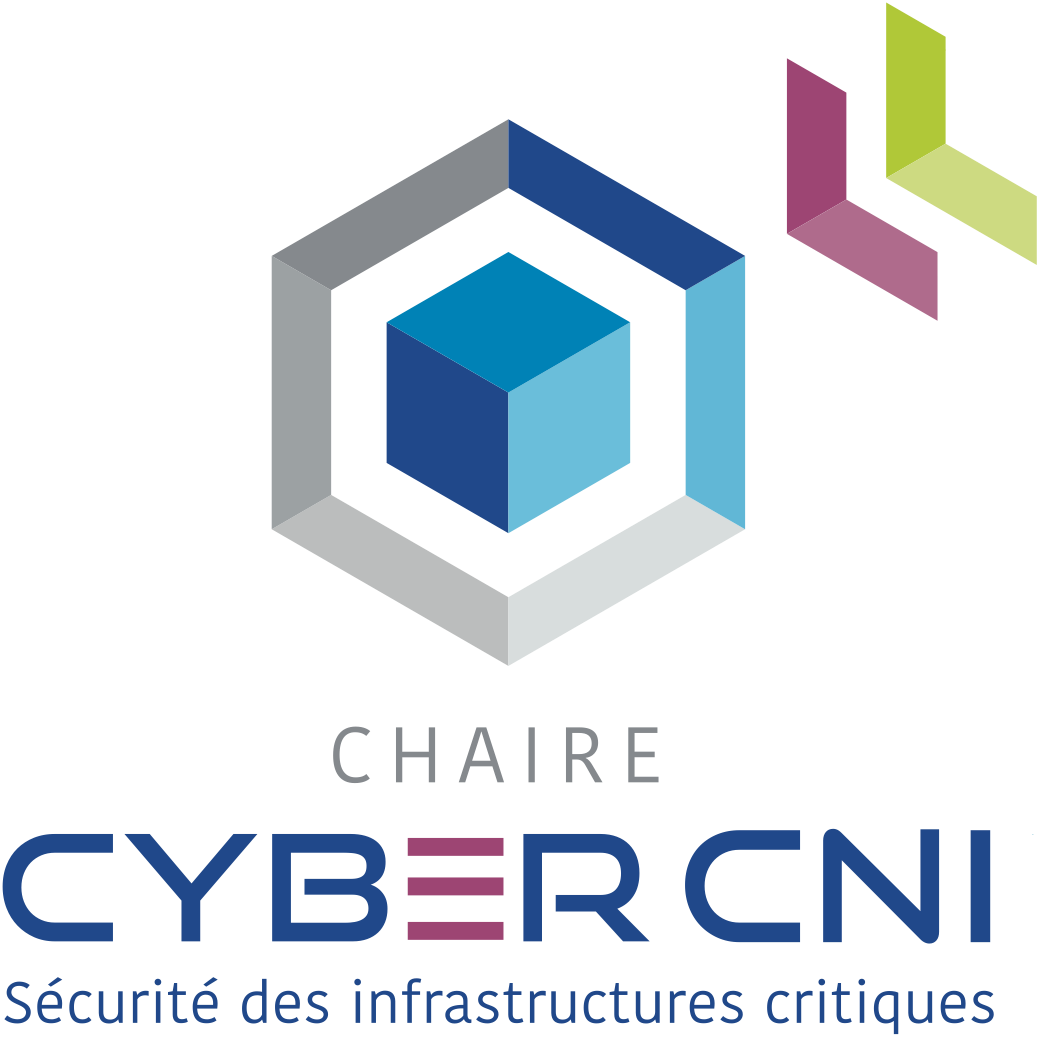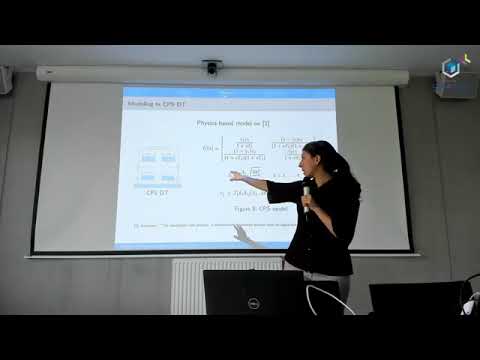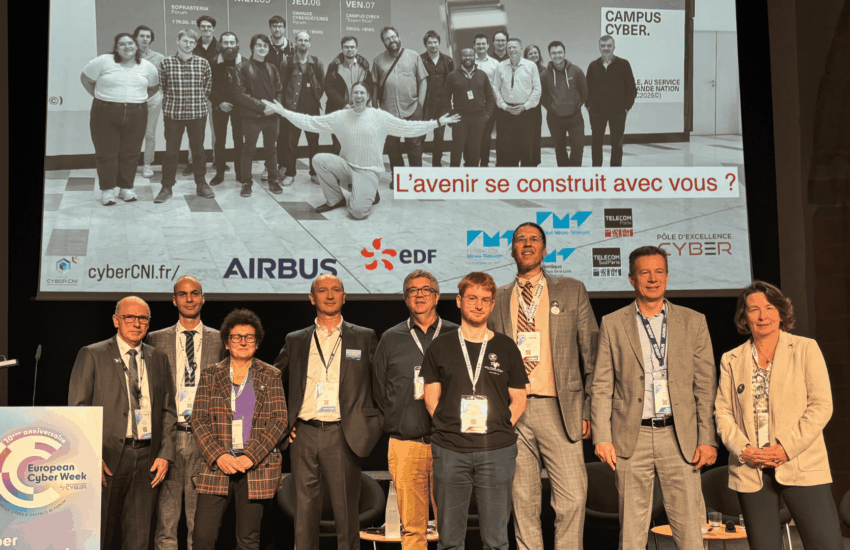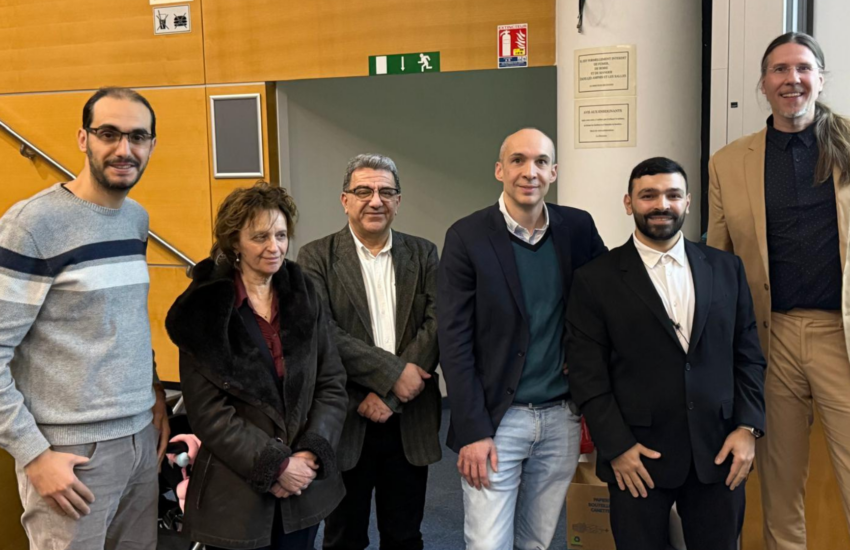[RU1/22] Mariana Segovia-Ferreira : Resilience-by-Design for Cyber-Physical Systems
On the research update spring 2022, our PhD student Mariana Segovia-Ferreira presented his latest results regarding “Resilience-by-Design for Cyber-Physical Systems“. This presentation is a part of our bi-yearly research update events of the chair Cybersecurity for Critical Networked Infrastructures (cyberCNI.fr). More infos on our website https://cyberCNI.fr/
We cordially invite you to contact us for collaborations, partnerships, etc. We are constantly looking for new industry partners to strengthen our profile. Make an appointment to find out more!
Abstract
This research aims at analyzing how Digital Twins (DT) may help to improve the resilience of Cyber-Physical System (CPS). A DT is a virtual representation of a physical process which can be used to simulate, predict and optimize physical characteristics and system behavior. As a virtual copy of a process, a DT may allow to detect malicious behavior in the system when the virtual representation and the real process do not behave in the same manner. In addition, the DT may help to repair the system damaged by malicious action using information from its DT to continue working in a safe mode.
We propose an approach for designing DTs suitable for security supervision functions and to analyze their robustness to face complex attacks. To validate the approach, the methodology is applied to build two DT, one based on a CPS testbed and other for a 5G network DT. They will be confronted with models of attackers with sophisticated intrusion capabilities, based on in-depth knowledge of the attacked system and, possibly, of the functioning of the DT.
About Mariana Segovia-Ferreira
Mariana Segovia-Ferreira received the B.Sc. and M.Sc. degrees in computer science from the University of the Republic in Uruguay. Then, she received her Ph.D. degree in network security from Institut Polytechnique de Paris and Télécom SudParis. Currently, she is working as a postdoctoral fellow at Télécom SudParis, in the RST department. Her research interests include network security, cyber-physical systems, critical infrastructures, graceful degradation, resilience to attacks, digital twins and distributed ledger technologies.
About the cyberCNI.fr Research Update
The cyberCNI.fr (https://cyberCNI.fr/) Research Update (Spring/ Fall) happens once per semester. It is the big status event of the chair Cyber CNI. All works around the chair (PhD students, PostDocs, Engineers, …) are presenting their progress, current works, and next challenges. There are vital discussions with the audience on the topics. It is the perfect opportunity for getting an overview on and discussing what is going on at the chair. From the spring 2022 event on, the Research Updates start with an industrial keynote of one of our partners, giving insights to and showcasing their work.
About the chair Cybersecurity of Critical Networked Infrastructures (cyberCNI.fr)
The Cyber CNI Chair at IMT Atlantique is devoted to research, innovation, and teaching in the field of the cybersecurity of critical infrastructures, including industrial processes, financial systems, building automation, energy networks, water treatment plants, transportation. The chair covers the full stack from sensors and actuators and their signals over industrial control systems, distributed services at the edge or cloud, to user interfaces with collaborative Mixed Reality, and security policies. The chair currently hosts 6+3 PhD students, 1+3 PostDocs, 11 Professors, 1+1 engineers, and 1 internship student.
The chair runs a large testbed that enables applied research together with the industry partners. The industry partners of the current third funding round are Airbus, Amossys, BNP Paribas, EDF, and SNCF. The chaire is located in Brittany, France. Brittany is the cybersecurity region number 1 in France. The chair Cyber CNI is strongly embedded in the cybersecurity ecosystem through its partnerships with the Pôle d’Excellence Cyber (PEC) and the Brittany Region. The chair provides a unique environment for cybersecurity research with lots of development possibilities.
- Les AFTERS by Pôle Excellence Cyber - April 7, 2023
- Federated Learning as enabler for Collaborative Security between not Fully-Trusting Distributed Parties - February 10, 2023
- [RU2/22] Anthony DAVID : Virtual Reality for cybersecurity data vizualisation - December 21, 2022










